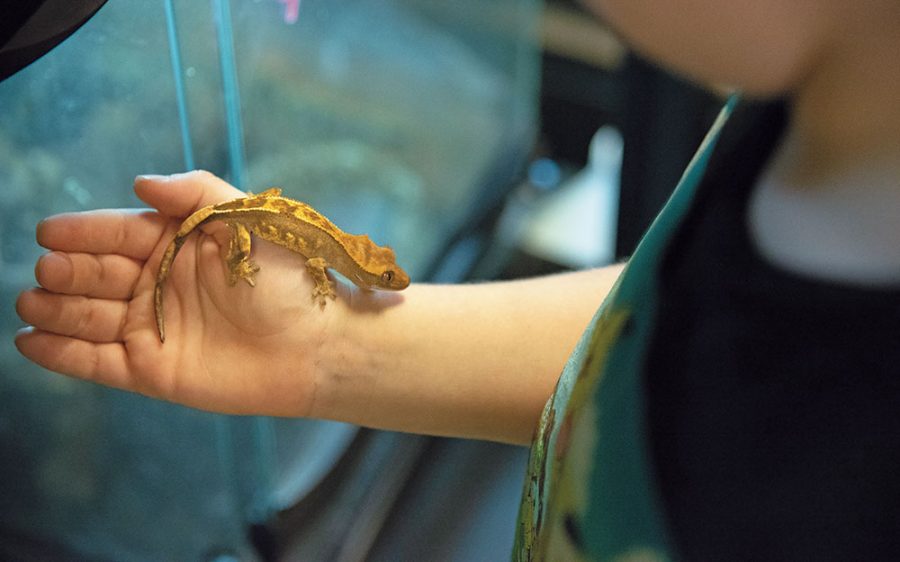They’re cute and they can be cuddly, but how do you know what kind of pet would work best for your family? When deciding on the right pet for you, consider your family’s lifestyle, finances, and personality.
According to the American Academy of Child & Adolescent Psychiatry, raising children with pets can benefit a child’s self-esteem and self-confidence while encouraging compassion and empathy. But, unlike a sweater that you return if it doesn’t fit quite right, choosing a pet shouldn’t be an impulse buy.
According to Barbara Poe, manager of shelter operations and behavioral services at an animal shelter, 75 percent of the animals returned to the shelter are a result of families adding a pet to their households without considering the challenges.
“This percentage rises when talking about the return of puppies. Puppies require a lot of time, socialization, and training,” Poe says.
A Moment of Your Time?
First, look at a typical day for your family to determine if you’re home enough to provide the care and attention a pet deserves.
“Kittens and puppies are like having an extra toddler in your house. They require a lot of supervision because they will chew on things, climb on things or get into things you don’t necessarily want them to or that might be harmful to them,” says Dawn Morgan, manager of volunteer and client services at an animal rescue organization.
While older dogs and cats may adjust better to a busy lifestyle, they still need exercise, playtime, training, and grooming. Without enough exercise and social interaction, a bored, lonely dog may take out its frustrations in destructive behaviors like chewing and digging.
Less demanding pets, such as fish, might work better for families with hectic schedules. As with any pet, determine in advance how much you want your child to help, whether it’s with feeding or cleaning. Be prepared to enforce the rules and pick up any slack.
A Financial Commitment
Besides food, spaying or neutering, vaccinations, and supplies, the scale slides wildly when considering the overall financial cost of a pet. Life expectancies vary and if your pet develops health problems, you’ll likely pay more for its care over the long haul than for an otherwise healthy animal. Also, if you choose a more exotic pet like a guinea pig, bird, or a reptile, prepare to pay a little extra for a veterinarian who specializes in handling these animals.
It’s a Match!
To ensure both the safety of your child and the welfare of the animal, understand the temperament of various types of animals.
“It’s really important when you think to bring a pet into your home that you look for a dog or cat that matches your personality and will fit into the dynamic of your family instead of just the one that is the cutest,” Morgan says.
If you’re adopting from a shelter, talk to the volunteer who walks and feeds the animals. This person usually spends the most time with individual cats and dogs and can talk to you about their personalities and which ones would do well in a home with children.
Among dogs, research breeds and mixes. While retrievers and Labradors tend to be good family dogs, some families don’t realize how much exercise and attention these breeds require.
Consider your child’s personality as well. “Shy or timid kids are confusing to a dog. Dogs react differently to a shy, fearful behavior and may see it as threatening behavior,” says veterinarian Dr. Andrea Ferrell.
If you choose a puppy, enroll in a puppy training class to ensure that it learns to properly interact with people and to socialize with other dogs.
Pocket Pets
Nicknamed “pocket pets,” animals like rabbits, guinea pigs, and other small mammals make good first-time pets for children.
“I really like pocket pets for kids as a starter pet,” Ferrell says. “Most rabbits and guinea pigs are well-adapted to living with children…(and) can really get affectionate.”
Purchase a young rabbit or guinea pig so that it grows accustomed to handling.
While they don’t require much in the way of exercise, rabbits and guinea pigs do enjoy social interaction and clean, indoor enclosures.
Birds and Reptiles
Carefully research other small animals like birds, reptiles, and amphibians before adding them to your family. Many of these animals are neither easy to care for nor to handle. Turtles, in particular, carry Salmonella bacteria on their shells, which can sicken a child still learning hand-washing hygiene.
When researching the right pet for your family, talk to friends and family who own pets that you are interested in, your veterinarian or your local animal shelter. For more tips and information, visit http://www.veterinarypartners.com.
Terry Basile, a Marriage and Family Therapist with a private practice in Chico, offers some reminiscent words from her experiences with people and pets:
“Do you remember the name of your family pet? Of course you do, because they were important members of your family. They listened to your sad stories and always made you feel better with a wet kiss or tender touch. They joined in your joyful energy at play. Pets can be the safest friend for a child who is more introverted or has special needs. Pets accept and love children without judgment. “
“They teach a child about the importance of the nurturing side of a relationship as children learn to walk, brush, or feed their animal friend.”
“Even in their passing, it is a moment to teach a child about the cycle of life and how to grieve in a healthy way.”
Terry Basile is a Marriage and Family Therapist (LMFT) in Chico, CA. (530) 588-2620
Comment Policy: All viewpoints are welcome, but comments should remain relevant. Personal attacks, profanity, and aggressive behavior are not allowed. No spam, advertising, or promoting of products/services. Please, only use your real name and limit the amount of links submitted in your comment.
You Might Also Like...
Girl Scouts Of Northern California Helps Girls Find Their Wow!
Meet the new Girl Scout. She hasn’t joined yet but she’s ready for WOW! With 3.2 million members across the globe, Girl Scouts believes every experience should be wow-worthy. In […]

Covered California: What You Need To Know About The New Healthcare Marketplace
According to the California Healthcare Foundation’s 2012 annual report entitled “California’s Uninsured: Treading Water,” in 2011 nearly 7.1 million people under the age of 65 were not covered by health […]
Capturing Birthday Memories with a Photo Booth
Birthday parties are a special time to create photo memories that will last forever. However, children’s parties are notoriously chaotic and it can be hard to juggle kids, presents, games […]

Tutor Doctor in the North State: Ten Steps Toward Building Your Child’s Strong Academic Future
Tutor Doctor in the North State Ten Steps Toward Building Your Child’s Strong Academic Future It’s that time of day again. The kids are home from school, backpacks bulging with […]


